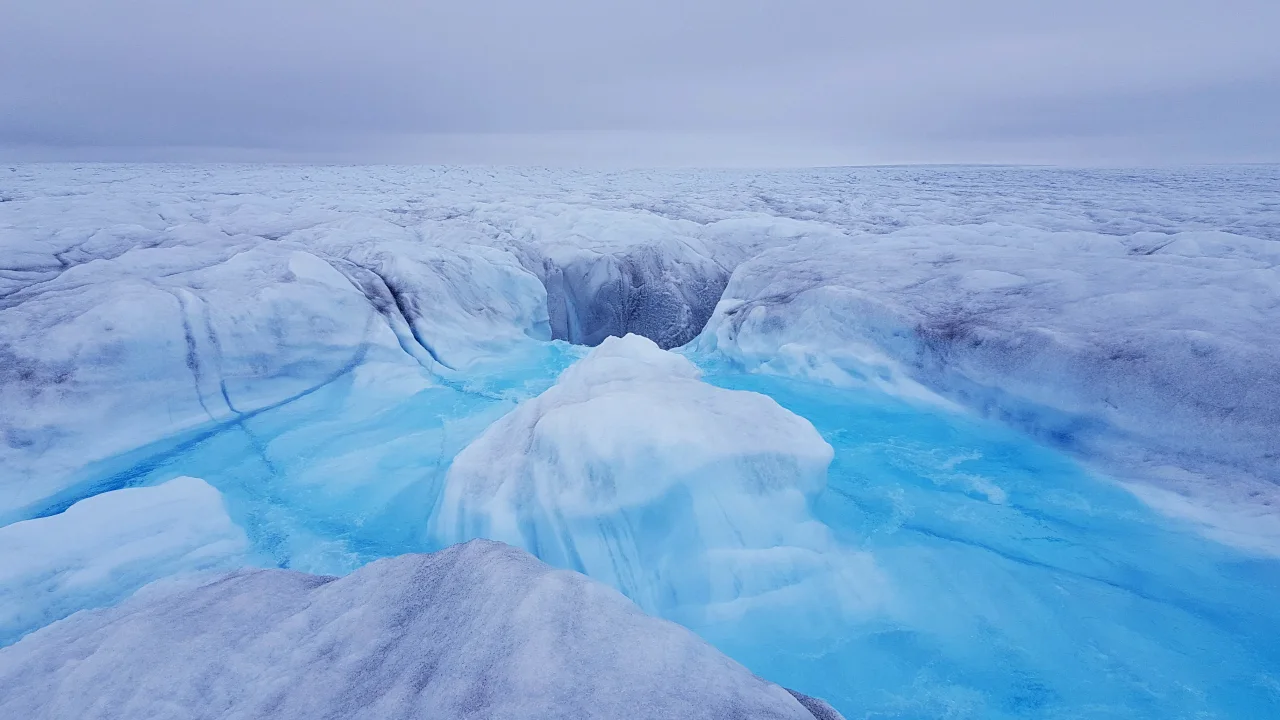Arctic and Greenland According to recent satellite data, ice sheets are melting quickly and contributing to sea level rise.
April 20, 2023Tweet

The Earth’s ice sheets have lost enough ice over the last 30 years to
create an ice cube 12 miles high, according to new research. The
Greenland and Antarctic ice sheets, which hold almost all of the world’s
freshwater ice, are shrinking at a frighteningly rapid pace, according
to a report from a team of international scientists. The seven worst
years for polar ice sheet melting all happened during the past decade,
with the worst year being 2019, when the ice sheets lost around 675
billion tons of ice. The loss of ice is having a significant impact on
the oceans, pushing up sea levels by 21 millimeters (just less than an
inch). The rate at which the Antarctic ice sheet is melting has slowed,
but remains much faster than in the 1990s. The report identified the
Antarctic Peninsula and West Antarctica as the regions where most of the
continent’s melt is happening, and it is not yet clear what might
happen to the Antarctic ice sheet.
Comments
Related news

Moscow explains why the US and EU are wary of Russian media.
Read more
"Dangerous manoeuvres" in the cat-and-mouse maritime pursuit between China and the Philippines
Read more
Bolton: America is "sitting still" despite increasing influence of China and Russia
Read more
Taliban in Afghanistan and Pakistan reach commerce and tension-reduction agreement.
Read more
Quarterfinals of the Champions League: Tuchel, Guardiola, Lampard, Kvaratskhelia, and Benfica
Read more
According to official media, North Korea is prepared to launch its first spy satellite.
Read more
Armchair detectives, "persistent misconceptions," and police criticism but no Britain mom.
Read more
According to a new study, the first signs of Alzheimer's disease may appear in your eyes.
Read more
When a volley of rockets are launched over the border, Israel starts attacks in Lebanon and Gaza.
Read more